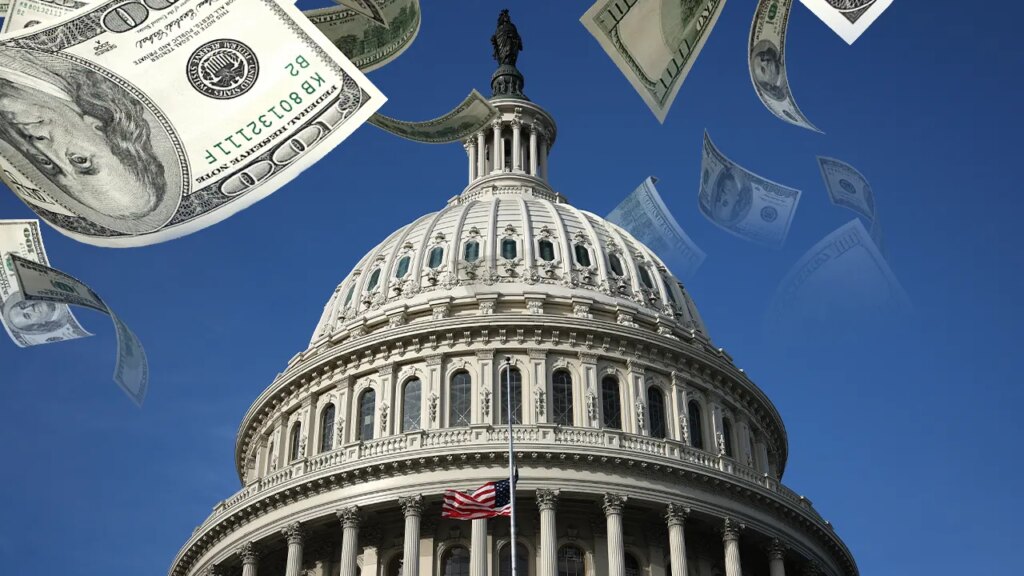A recent report by a non-partisan government watchdog has raised concerns regarding federal government spending as the U.S. approaches possible budget negotiations. The organization, Open The Books, revealed startling figures about federal employment costs and bureaucratic inefficiencies, emphasizing that despite a growing payroll, transparency remains lacking. As discussions continue to avert a government shutdown, the report highlights both the size of the federal workforce and its significant impact on taxpayers.
| Article Subheadings |
|---|
| 1) Overview of Federal Workforce and Payroll |
| 2) Financial Implications for Taxpayers |
| 3) Accountability and Transparency Concerns |
| 4) Legislative Steps Toward Greater Transparency |
| 5) Future Implications of Government Spending |
Overview of Federal Workforce and Payroll
The report released by Open The Books sheds light on the current state of the federal workforce, revealing significant growth in both numbers and compensation. According to their analysis, there are approximately 2.9 million federal employees, whose combined payroll expenditures reach a staggering $270 billion. This figure does not include the additional 30% spent on benefits, further raising the total outlay for taxpayers. Notably, from 2020 to 2024, while the number of federal employees has increased by just 5%, payroll costs have surged nearly five-fold. Such disparities raise urgent questions about the efficiency and effectiveness of federal agencies in managing taxpayer resources.
Financial Implications for Taxpayers
The financial strain on American taxpayers is significant. According to Open The Books, the cost of maintaining the federal workforce is approximately $673,000 per minute, translating to around $40.4 million per hour and nearly $1 billion daily. The report delineates an alarming trend, where nearly 1,000 federal workers earn more than the President’s annual salary, currently set at $400,000. Furthermore, over 793,000 employees are making salaries exceeding $100,000. Shockingly, the numbers suggest that those earning over $300,000 per year have escalated by 84% since 2020. The sheer magnitude of this spending raises critical concerns regarding budget priorities and the overall sustainability of federal financial practices.
Accountability and Transparency Concerns
The transparency surrounding federal employee salaries and expenditures has been called into question, particularly given the striking number of redactions in public records. The Open The Books investigation uncovered that names of about 383,000 federal workers from 56 different agencies have been withheld from public disclosure, amounting to approximately $38.3 billion in undisclosed salaries. Open The Books CEO John Hart commented on this lack of transparency, saying,
“You can’t have accountability without visibility.”
The absence of accessible salary information not only hampers accountability but also obstructs taxpayers from understanding how their money is being utilized, raising alarms about potential waste and mismanagement in federal spending.
Legislative Steps Toward Greater Transparency
Amid rising concerns, U.S. Senator Joni Ernst of Iowa has been actively collaborating with Open The Books to advocate for greater transparency in federal employment practices. Recently, she addressed issues of dual employment among federal contractors, where some employees have been found holding multiple full-time positions unlawfully, thus potentially leading to taxpayer funds being misused. Ernst’s push for accountability is encapsulated in the Non-Essential Workers Transparency Act, which seeks to provide detailed reporting on federal employee salaries and contractor expenditures during government shutdowns. This proposed legislation aims to compel executive agencies to disclose essential information, fostering greater oversight and allowing citizens to hold the government to account.
Future Implications of Government Spending
The broader implications of these financial practices are profound, especially considering the recent discussions about potential government shutdowns. Ernst pointed out that taxpayers could face over $12 billion in back pay for nearly 750,000 non-essential federal employees who would be furloughed during a government stalemate. The risk of running into such financial predicaments emphasizes the need for a reevaluation of federal spending priorities. As government agencies gear up for negotiations on budgetary matters, the findings of Open The Books serve as a crucial reminder of the pressing necessity for reform and accountability.
| No. | Key Points |
|---|---|
| 1 | Federal workforce costs taxpayers nearly $1 billion per day. |
| 2 | Payroll expenditures have increased significantly compared to employee numbers. |
| 3 | Significant numbers of federal employees are earning salaries above $100,000. |
| 4 | Federal salary transparency is severely limited, with many names redacted in public records. |
| 5 | Legislative efforts are underway to implement greater transparency in federal payroll. |
Summary
In light of the growing concerns about federal spending and transparency, the recent report from Open The Books highlights the unsustainable financial trajectory of government payrolls. As the nation braces for possible budget negotiations, the call for accountability and reform in federal spending practices has never been more urgent. With continued scrutiny and legislative initiatives aimed at improving transparency, there is hope for a more efficient government structure that ensures taxpayer dollars are managed responsibly and effectively.
Frequently Asked Questions
Question: How has federal workforce spending changed since 2020?
Since 2020, federal workforce payroll costs have increased significantly, with spending growing nearly five times compared to a mere 5% increase in the number of employees.
Question: What actions are lawmakers proposing to improve transparency?
Legislation such as the Non-Essential Workers Transparency Act aims to require federal agencies to publicly disclose salary information during government shutdowns, promoting accountability.
Question: Why is federal salary transparency important?
Federal salary transparency is crucial for holding government officials accountable and ensuring taxpayer funds are managed effectively and efficiently, preventing waste and mismanagement.
